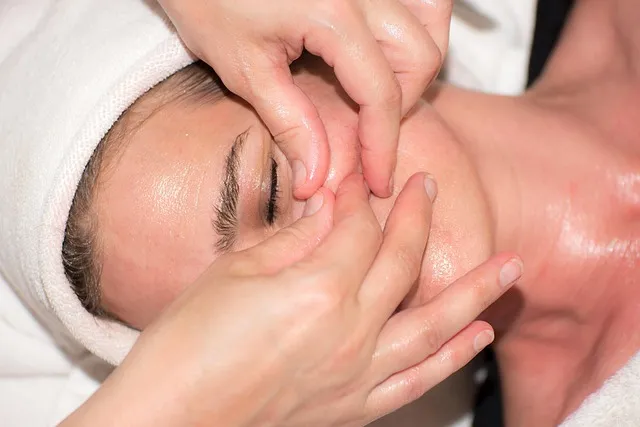Over the past few years, goat milk soap has become all the rage among beauty and skincare aficionados. And that growing cache of popularity leads to a sea of misinformation about what the natural cleanser can — and cannot — do for your skin. For some, it’s a magic elixir that fixes any and every complexion woe; for others, it’s an overpriced jar of marketing fluff. The reality is somewhere in between. Goat milk soap certainly has benefits for many, but let's separate hype from fact so you can evaluate its use in your skincare. In this article, we’ll explore the top ten myths about goat milk soaps and reveal what science and skin care research really have to say about one of the latest skincare trends.
Myth 1: It's Only Good for Dry Skin
Another myth is that you can only use goat milk soap if you have dry skin. This myth likely stems from the inherent hydration benefits of goat milk, but what's happened here is a bit more nuanced. Goat milk soap can be incredibly beneficial for various skin types, depending on the formula. The unrefined lactic acid is going to give some mild exfoliation that is good for congested pores, while proteins and fats serve a little conditioning without being too heavy.
And the people who have oilier or combination skin aren’t out of luck entirely: You can still use goat milk soaps, especially bars that are designed to help balance the skin with added ingredients such as tea tree oil and activated charcoal, both of which will offer a little extra cleaning power. Goat milk soap can even be a soothing option for sensitive skin conditions, such as irritation caused by a natural deodorant rash or other minor reactions.
Myth 2: Goat Milk Soap Is Nothing but a Marketing Hype
Goat milk soap is often misunderstood and under-appreciated, with the tales of it being a hyped-up beauty trend. But goat milk has been a beauty ingredient in skincare for thousands of years. The most famous user of goat's milk as a bath water is none other than Cleopatra, the Egyptian Queen from Ancient times.
The revival of goat milk soap isn’t all hype. Goat's milk has alpha-hydroxyl acids (which fancy creams do), vitamins A and D, as well as some fats that are essential to skin health. These ingredients exfoliate dead cells from the surface of the skin, and your skin becomes soft and smooth. It provides the skin with deep hydration, too. There are plenty of tried-and-true ways to use goat milk for your skin that have science backing them up, so it’s not just a trend - goat milk is an effective ingredient in skincare!
Myth 3: All Goat Milk Soaps Are the Same
There’s a myth that runs among soap users, the one that goes like this: all goat milk soaps are created equal – or at least close to it. However, the properties and benefits of these soaps can vary greatly depending on what it is made of, how much goatsmilk is included in the overall recipe, and quality control during production.
Many commercial ones aren’t even made from real goat’s milk, but instead stuffed with fake fragrances and other toxic ingredients that don’t benefit the skin at all! If it’s handcrafted or artisan-made goat milk soap, they will typically have even more of the good stuff that makes this such a popular ingredient.
Definitely check the ingredients shown on the package. By all means, order this product from a place that you can trust if they're honest about how much goat milk is in it, and where they receive the ingredient.
Myth 4: Goat Milk Soap Works Instantly
The beauty industry often promotes instant results, and goat milk soap is no exception. Some marketing materials claim your skin will look dramatically better after one use.
However, real skincare improvements take time. While goat milk soap may feel gentler and more moisturizing than regular soap immediately, visible changes in skin texture, tone, or condition typically require consistent use over several weeks.
Myth 5: Goat Milk Soap Causes Acne Breakouts
Some avoid goat milk soap because they think dairy products will exacerbate acne. But applying goat milk to the skin is a different form of consumption than ingesting other forms of dairy.
Goat’s milk is home to lactic acid, an alpha-hydroxy acid that breaks down dead skin cells, which helps to keep your skin clear of acne-causing build-up in your pores. Then there is the hydrating part of the soap, which stops the skin from overproducing oil during a dehydrated stage and helps prevent breakouts.
Naturally, everyone's skin behaves differently - some may still be sensitive to any type of dairy-based product (including goat milk soap).
Myth 6: It Can't be Used in the Face
Many people are under the impression that goat milk soap is heavy and rich and, therefore, should not be used on your face, only on your body. This is a misconception that does not account for how gentle, well-crafted goat milk cleansers are.
Goat milk soap might even be mild enough for your face if you have sensitive skin and none of the commercial facial cleanser products work. The idea is to choose a product intended for the skin or something mild enough that you can use on your body and face. It’s best to try a patch test, and also to ease yourself into using — say — the goat milk soap on your face, before you know for sure that your skin can take it.
Myth 7: Goat Milk Soap Smells Like Farm Animals
This is one of the biggest myths that keeps people scared away from goat milk soap. Top-quality goat milk soap is not supposed to reek like a barn! If something smells bad overall, it’s because someone has added (or taken away) something to allow a less expensive product to be made.
Some people adore the gentle, creamy aroma of a well-crafted goat milk soap. Essential oils and natural fragrances are also often included for the consumer's enjoyment, but not at the expense of the soap's usability. Do not use a goat milk soap that smells like a barn.
Myth 8: Goat Milk Soap Contains Dangerous Bacteria
Many are also questioning whether goat milk soap is safe to use, and there may be concerns about goat milk containing bacteria. The fear is usually because of unwarranted and unfounded beliefs about making soap and saponification. When made correctly, goat milk soap undergoes saponification – a chemical reaction between fats and lye (a chemical) that forms soap and glycerin. This, along with the alkalinity of the soap when finished, is what creates an environment inhospitable to harmful bacteria.
Reputable soap makers follow safety protocols and hygiene standards that ensure their goat milk soap products are safe for consumer use. Try to shop for ones from reputable companies that employ good manufacturing practices.
Myth 9: Goat Milk Soap Is Too Expensive to Use Regularly
Although goat milk soaps are typically more expensive than traditional mass-produced soaps, they aren’t as costly as many believe. Good handmade goat milk soap lasts longer when used because it is naturally much denser and will not turn mushy when left in a soap dish.
And when you crunch the numbers on cost per use, goat milk soap generally has more bang for your buck than that expensive skincare product promising you similar results. Countless people can get rid of other skincare products in favor of goat milk soap, which can save them money over time.
Myth 10: Anyone Can Make Quality Goat Milk Soap at Home
The DIY skincare trend has made a lot of people think that they can make top-notch goat soap at home without knowing how or having all the necessary tools. Soap making can be a fun hobby, but when you make your soap from scratch, it takes too much time, and there are sometimes safety considerations with the finished product.
Homemade goat milk soap can be great, especially if made by experienced crafters. However, inexperienced soap makers may produce high pH, improperly saponified, or contaminated batches of goat soap.
So if you’re an aspiring do-it-yourself soap maker, start by educating yourself on good practices and knowing everything about safety when working to produce your goat milk soap.
Making Informed Choices About Goat Milk Soap
Knowing the truth about goat milk soap helps you to make better choices for your skin. This natural ingredient offers genuine benefits for many people, but it is not a miracle cure and may not be suitable for everyone's needs.
When comparing goat milk soaps, consider your skin type, concerns, and budget. Don’t trust in myths — whether super positive or unreasonably negative ones — to make your decision for you. Instead, focus on finding quality products that have some solid feedback and give them adequate time to do the work.
Also note that skincare is incredibly personal, and what works like a charm for one person can be just so-so to another. And goat milk soap deserves to be recognized for what it is, in the potency you require, not because of exaggerated promises or unfounded fears.
लेखक





